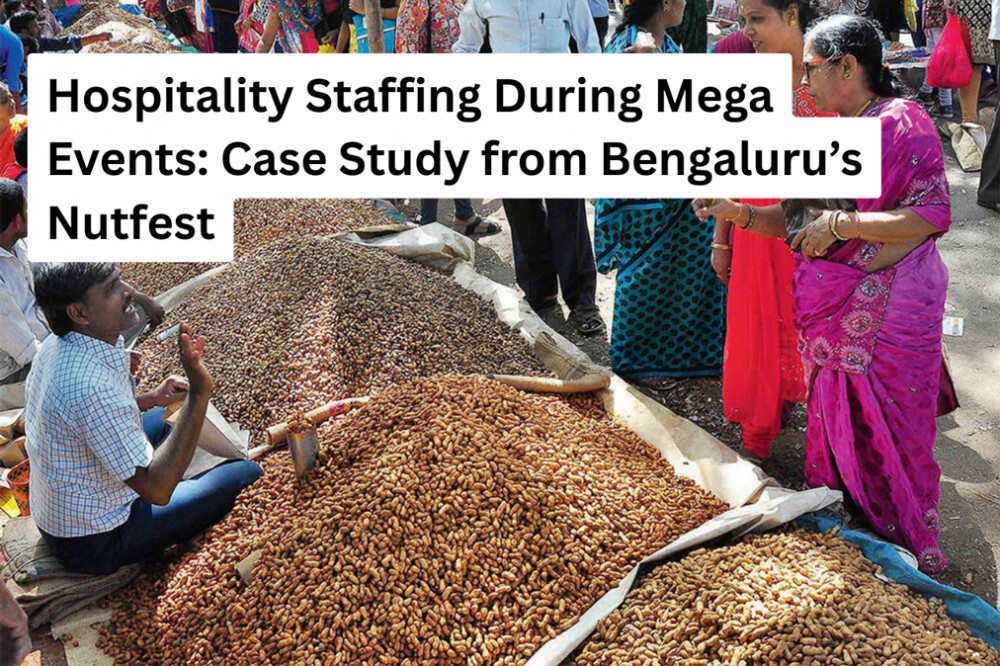
Making Interviews More Inclusive for Non-English Speakers

India's hospitality industry is built on diversity. From luxury hotels to beach resorts, the industry thrives on welcoming a diverse clientele from across the world. A multicultural workforce reflects this diversity. That said, one of the challenges of equitable hiring today is the interview process itself. Technical candidates who are skilled in the art of hospitality but not conversant in English can face challenges in the interview process, and, for some, interviewing can limit their potential instead of opening doors.
This blog will look at how to conduct inclusive interviews, specifically when interviewing non-English speakers in hospitality in India, and why hiring multilingual employees here is a win-win for modern hospitality brands.
The Importance of Designing Inclusive Interviews
India has different languages and countless regional dialects, yet typically, all corporate interviews occur in English. This includes the hospitality industry, where having a good command of English is often around some misguided assumption of someone’s competence.
For millions of Indians, English is a second or third language. Candidates who are coming to hospitality from rural areas or from vocational institutes, or those from marginalised groups in society, may have great service skills and not be confident in their English skills. If the interviewers are relying on anything other than a service-oriented assessment to judge whether they can offer the candidates employment, hotels are going to miss out.
The cost of making interviews inclusive in India is much more than social justice; it makes business sense. Multilingual staff will improve the guest experience, lessen operational friction, and showcase the spirit of Indian hospitality.
Key Challenges in Interviewing Non-English Speakers in Hospitality
Before considering solutions, let’s illustrate some of the common barriers that non-English-speaking interviewees face in hospitality interviews.
- Over-Reliance on Speaking English: Some interviewers automatically associate English language ability with professionalism, even in posts where it is not formally required.
- Job Descriptions Only in English: Job ads are typically posted in English, thus excluding non-English viewers.
- Conscious or Unconscious: Bias from Panels: Moderation in panels could cause an unconscious advantage to English-speaking candidates, especially since language confidence is used to make judgments about capability.
- No Testing in Hospitality Interviews: Interviews very rarely test what hospitality is, which necessarily includes skills to deliver room service, engagement with guests, etc, in the local language.
Tips for Making Interviews More Inclusive in India
1. Reframe the Job Description
Inclusion starts at the first point of contact—the job description.
- Translate job descriptions into the local language(s) relevant to your area (e.g. Hindi if you are in Delhi, Tamil if you are in Chennai, Marathi if you are in Pune, etc.).
- Indicate whether you simply prefer or require English based on the job. For example, while a front desk manager may require conversational English, a kitchen steward will likely not.
- Use simple language and avoid jargon or complicated references that may not be obvious to those who do not speak English.
This step ensures that a greater and more diverse group of candidates apply to your position, particularly those who are talented enough to apply but do not necessarily have the self-confidence at this moment due to the language issue.
2. Provide Multilingual Interview Options
Part of inclusive interviews in India is to allow the candidate to answer in their home language.
- Use bilingual interviewers or have interpreters available during interviews.
- Promote this as part of your brand values so candidates can be empowered to be themselves.
- Offer written tests or situational questions to candidates in their own language for front-facing operational roles.
This takes the pressure off and enables the candidates’ actual strengths to surface: their attitude, openness to learning, and skill/knowledge rather than just language skills.
3. Use Skill-Based Assessments
When you are interviewing bilingual staff in hospitality through the medium of English, prioritise what they can do rather than how they speak.
- Role-play: Ask a housekeeper candidate to clean a room or respond to a guest's request; they can do this even in their home language.
- Set up hospitality task stations for cooks, bartenders, and wait staff to show their hands-on skills.
- Get them to demonstrate their understanding of hygiene and health standards, guest interaction etiquette, and team coordination; these are core competencies that will go beyond language.
This is particularly significant when hiring multilingual staff in India for back-of-house and guest-facing roles.
4. Onboard Your Interviewers
It is important to remember that inclusivity begins with awareness. So first, require that your team of recruiters participate in bias training. In this particular case, they must understand
- How to acknowledge and mitigate bias involving party-specific language
- The difference between communication skills (which can be demonstrated in many languages) and fluency in English
- The knowledge, skills, and abilities that culturally and linguistically diverse individuals bring to the hospitality industry
Remind your interviewers of the importance of empathy, clarity and patience when interviewing any candidate, especially with nervous and hesitant, non-English speaking candidates.
5. Provide A Welcoming Environment
Once a candidate walks in, their environment should feel inclusive.
- Offer signs in languages supported by your recruitment team in waiting rooms and reception areas.
- Make the interview process instructions as simple and visual as possible.
- If staff are comfortable with greetings and introductions in a candidate's native language, it can build both comfort and rapport.
It is also important to remember that candidates are making their first impression of your brand at the same time frame as you evaluate them.
The Case to Hire Multilingual Employees in India
In a time where travellers expect real, authentic personal experiences, businesses need to put their best foot forward with staff who can speak both the regional languages and other international languages.
Some of the benefits include:
- Smoother communication with international guests.
- Better relationships with domestic tourists from other states.
- Increased staff satisfaction with feeling understood and valued.
- Defining yourself in the tourism market as a progressive and inclusive employer brand.
More importantly, inclusive interviews in India represent an important part of social upliftment, helping economically challenged, yet gifted, people an opportunity to thrive.
Ready to Hire Multilingual Talent, Faster?
If you're looking to implement inclusive interviews in India and streamline the process of interviewing non-English speakers in hospitality, Foodism Connect is here to help.
👉 Join Foodism Connect today and start building a workforce that truly reflects India's diversi
Related Blogs

The Rise of Boutique Hotels: Recruiting for Experience, Not Size
73 Views

Top 5 Hospitality Roles Most in Demand This Quarter
71 Views

Hospitality Staffing During Mega Events: Case Study from Bengaluru’s Nutfest
86 Views

Festival Hospitality: What Food Events Teach About Guest Management & Staffing
194 Views

Little Guests, Big Smiles: How Hotels Design Family-Friendly Experiences
171 Views